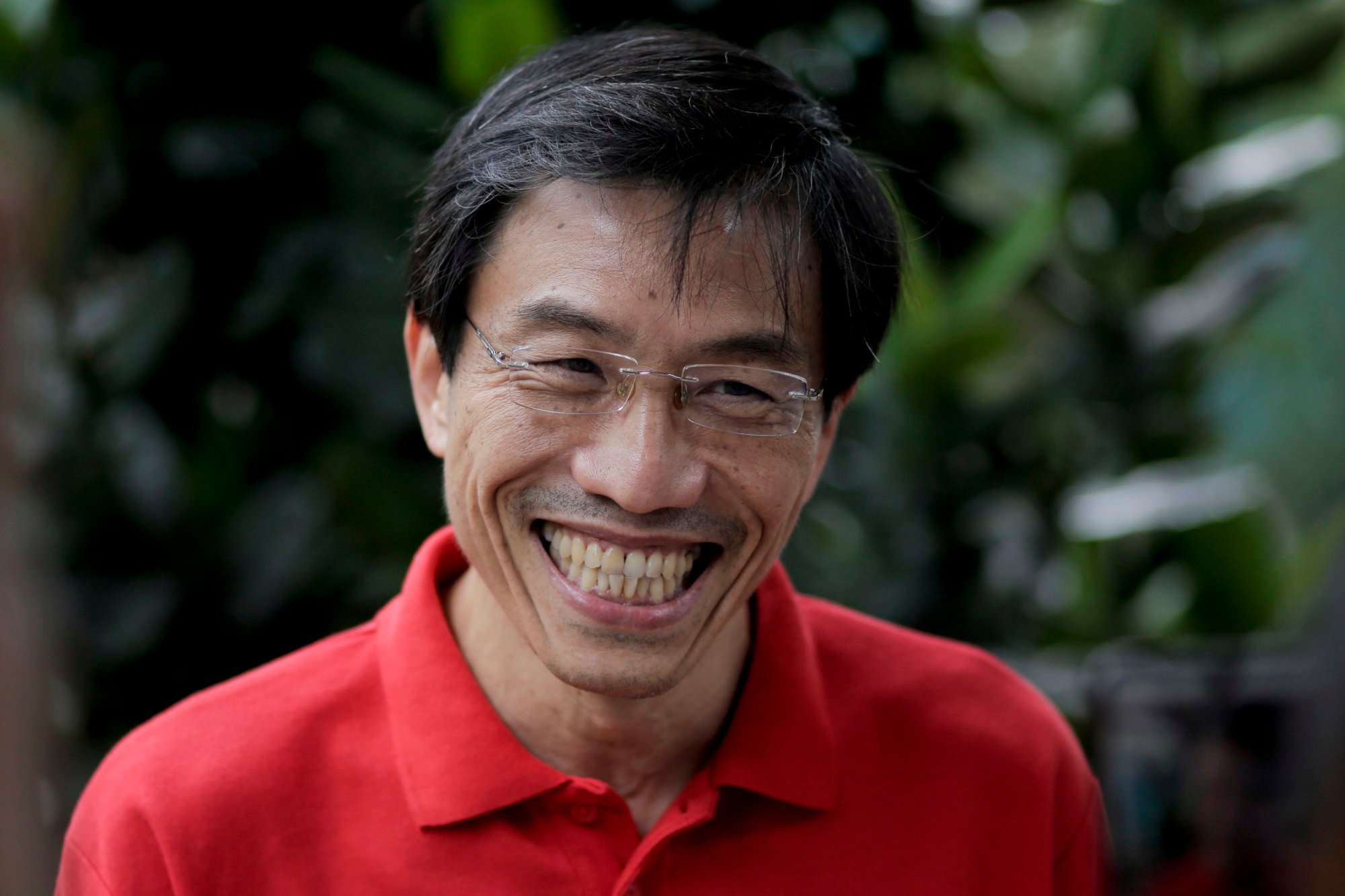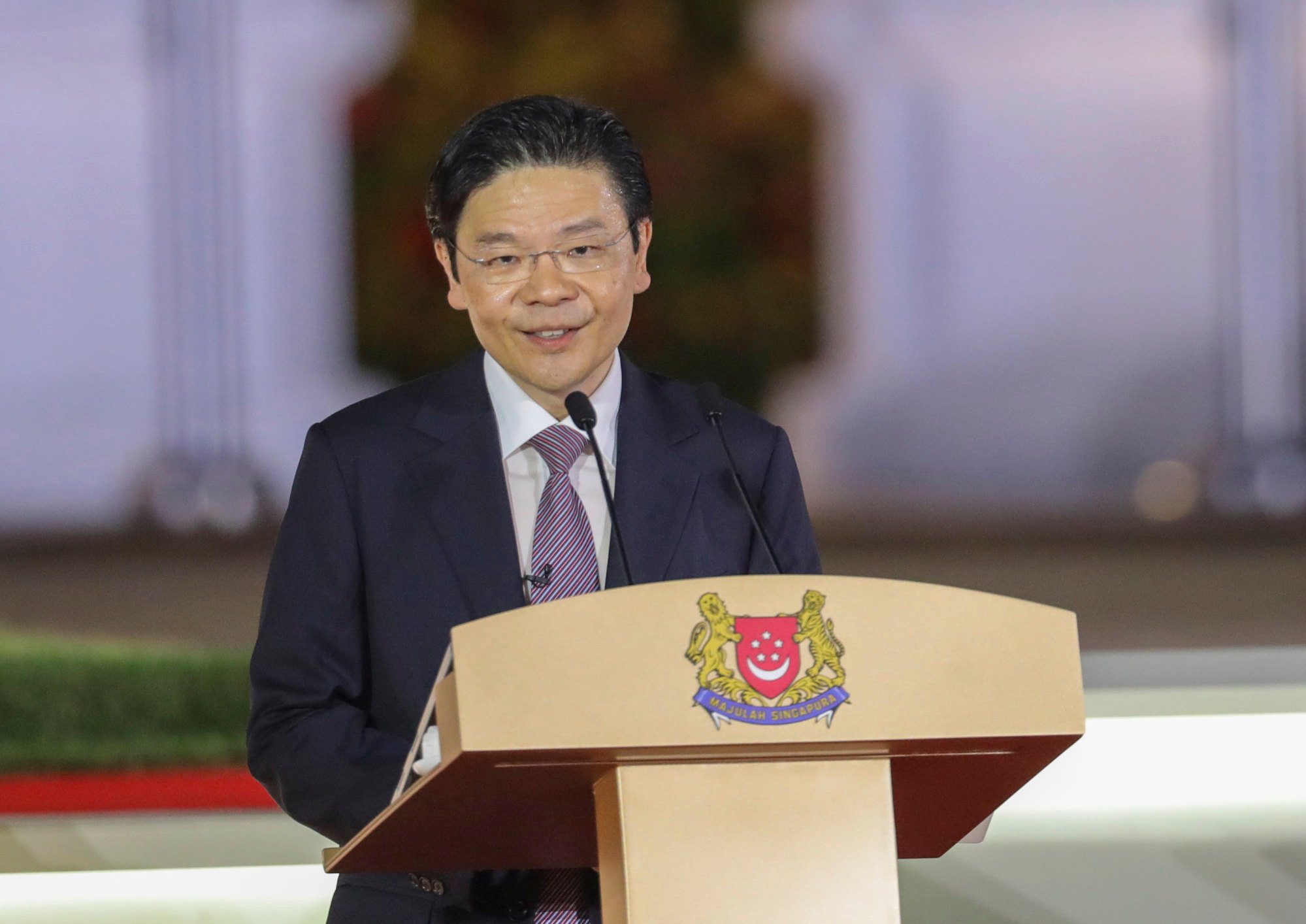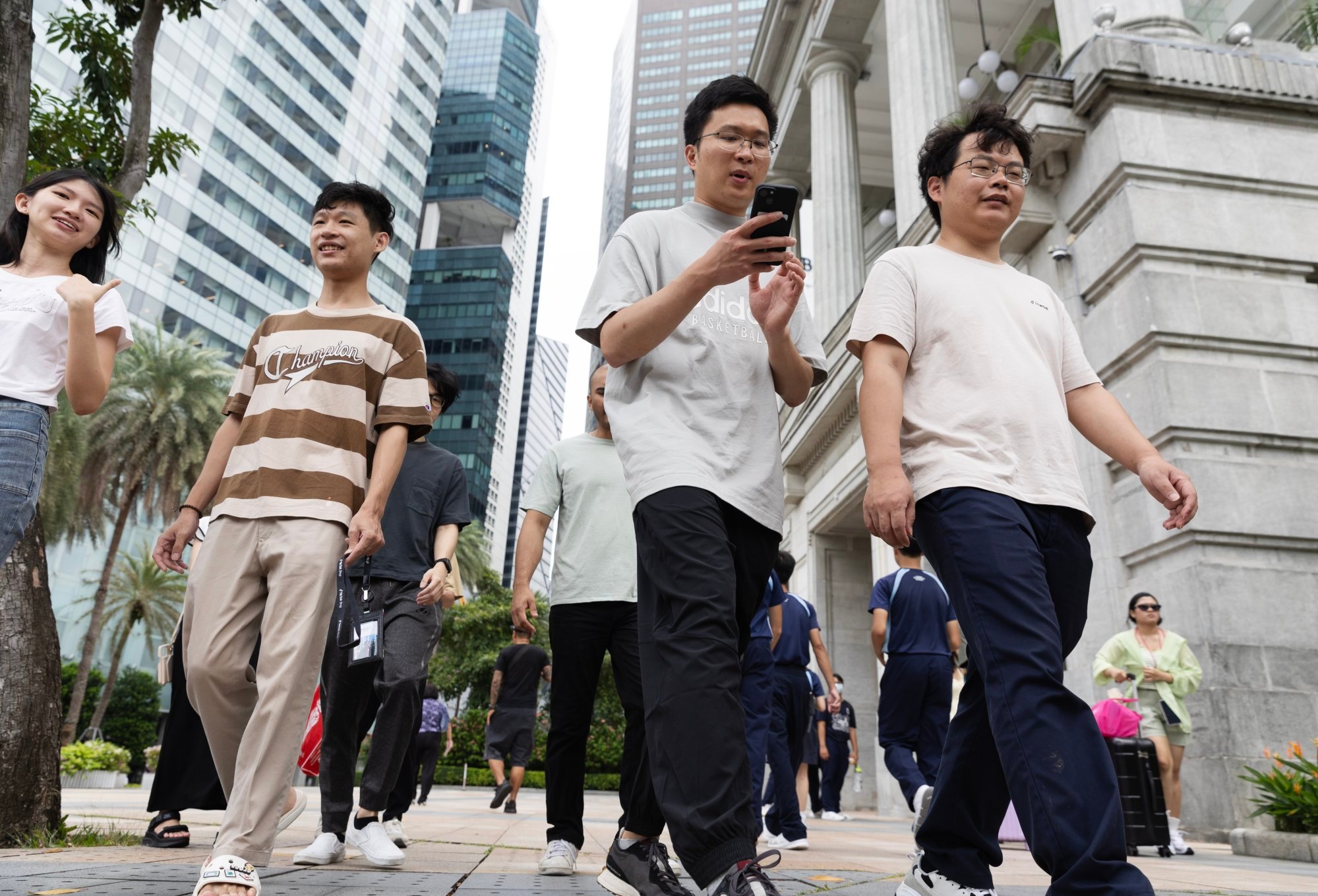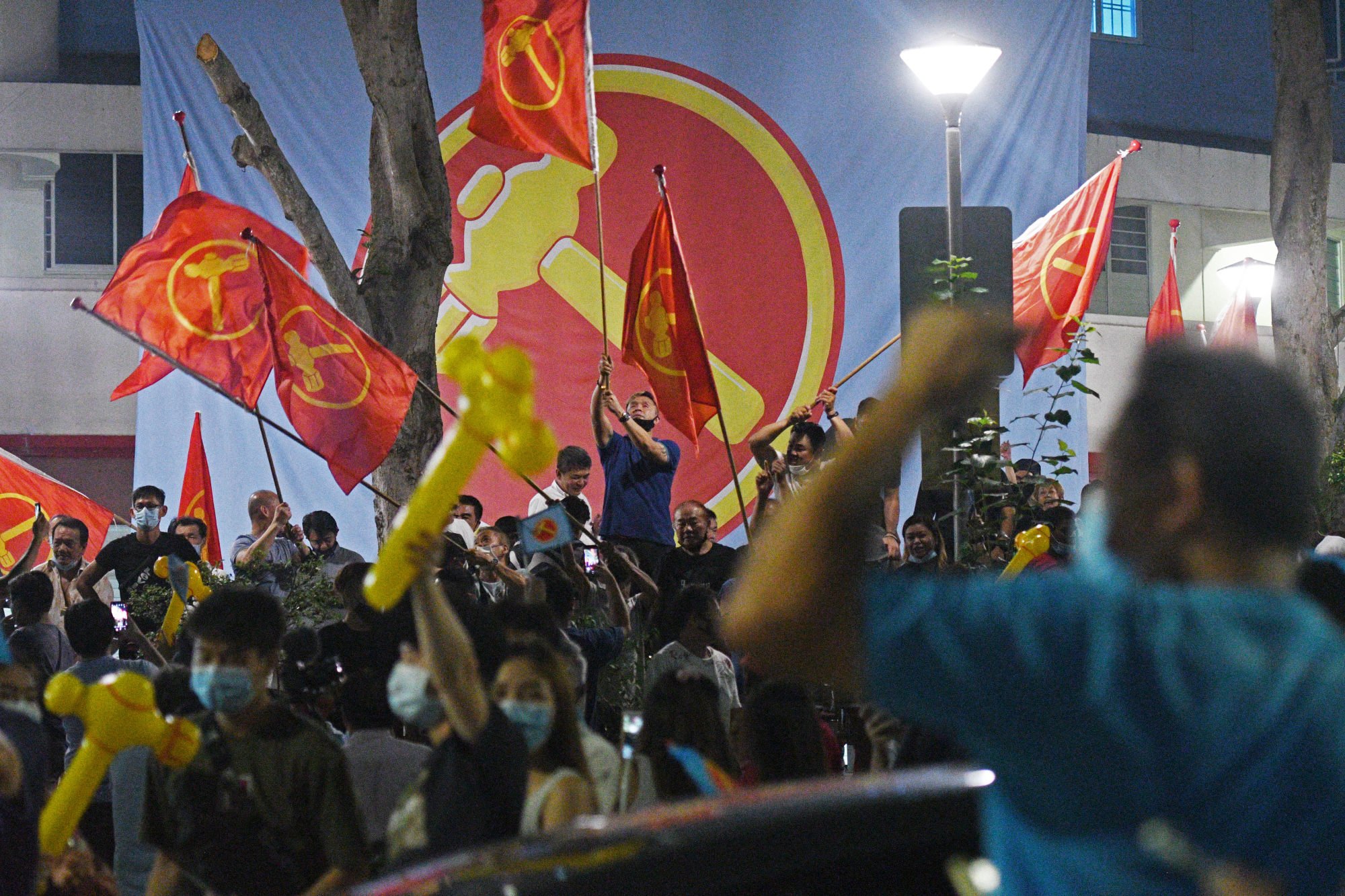- Joined
- Apr 14, 2011
- Messages
- 17,899
- Points
- 113
In Singapore’s brewing election battle, immigration anxiety takes centre stage
- The presence of foreign workers has long been a hot-button political issue in Singapore – and the opposition is seeking to capitalise
Singapore
+ FOLLOW

Kimberly Lim
+ FOLLOW
Published: 4:00pm, 11 Jun 2024
Why you can trust SCMP
Listen to this article
As the political buzz in Singapore gets louder with an election purportedly around the corner, one opposition party has already launched the first campaign salvo centred around a familiar strategy.
“The campaign message hangs on one issue: foreign workers,” said Chee Soon Juan, secretary general of the Singapore Democratic Party, during its campaign launch last month.
In his speech, Chee argued that while foreign workers had made significant contributions to Singapore’s growth, an increasing reliance on this workforce threatened national identity and aggravated income inequality.
Chee vowed that his party would urge the government to “say very categorically” that it would “significantly reduce the inflow of foreign workers”, adding his party would work towards formulating policy alternatives until the election.
As Singapore’s political parties look ahead to the next election – widely tipped to happen as soon as this year – observers say the issue of foreign talent may be used by the opposition as political ammunition against the ruling People’s Action Party (PAP).

Chee Soon Juan, secretary general of the Singapore Democratic Party, reacts during a campaign walkabout ahead of the 2020 general election. Photo: EPA-EFE
“Opposition parties are likely to focus on areas where Singapore faces intense challenges – cleanliness of institutions and government figures, cost of living and inflation, influx of foreigners that burden an already stressed infrastructure, employment in better-paying jobs for Singaporeans – and hold the incumbent party to task in its management of these challenges,” said Kasthuri Prameswaren, a lecturer at the Singapore University of Social Sciences who specialises in the politics of Singapore and Southeast Asia.
In an interview with the Economist last month, newly appointed Prime Minister Lawrence Wong talked about the tough balancing act that the government had to strike between maintaining Singapore’s open economy and providing measures to protect the livelihoods and jobs of locals.
“We welcome foreign professionals to work in Singapore, but it is controlled,” he said. “Because if it is not controlled, I think we will be easily swamped. We cannot afford to be like the UAE, where the local residents are only less than 10 per cent of the population. They have a different compact because they use the oil and gas revenues to provide everything for the citizens.
EVERY FRIDAY
Discover news and insights on women trailblazers, social issues and gender diversity in Asia
GET OUR NEWSLETTER
By registering, you agree to ourT&CandPrivacy Policy
“In return, they just allow foreigners to come in freely. That is not possible in Singapore.”
The presence of foreign professionals in Singapore has long been a hot-button political issue, particularly during election season.

Singapore’s new Prime Minister Lawrence Wong said last month that it wasn’t possible for the city state to “just allow foreigners to come in freely”. Photo: Ministry of Communications and Information/Handout via AP
In the watershed 2011 general election, the PAP lost a Group Representation Constituency for the first time. Political analysts cited the debate around foreign talent during campaigning as one of the factors contributing to the victory of the opposition Workers’ Party in Aljunied GRC.
“Voters [during the 2011 election] were very concerned about their ability to navigate this increasingly tough terrain in many aspects – overcrowding in public transport, hospital bed crunches and strains on the healthcare sector, stagnant wages in a more expensive city state. Voters had likely felt that the then-liberal immigration policy was largely responsible for much of these woes,” Prameswaren said.
Singapore relies heavily on foreign labour, ranging from professionals to manual workers. As of June last year, out of Singapore’s 5.92 million population about 1.77 million were non-residents including foreign workers, their dependants, international students and others, according to official data.

People walk in Singapore’s central business district last month. Among the foreign workers who have arrived in Singapore in recent years were those who left Hong Kong amid the pandemic. Photo: EPA-EFE
Among the foreign workers who have arrived in Singapore in recent years were those who left Hong Kong amid the pandemic, with analysts previously telling This Week in Asia of a talent exodus to the city state during that time.
A 2021 Institute of Policy Studies survey that polled some 2,000 Singaporeans found that more than 70 per cent thought the government should place strict limits on the number of foreign workers entering the country.
“In the past, skilled foreign labour posed more economic threats than cultural, and vice versa for the low-wage foreign workers,” Leong Chan-Hoong, a senior fellow for social cohesion research at the Nanyang Technological University’s S. Rajaratnam School of International Studies, told This Week in Asia. “But as the nature of jobs evolve over time, the distinction is less clear, both economic and cultural impact shape how Singaporeans think of this issue.”
The issue is not unique to Singapore and “mirrors a general trend of rising anti-immigration sentiment that we’ve seen across the world, ranging from the rise of Trump to Brexit in the UK,” said Rebecca Grace Tan, a political-science lecturer at the National University of Singapore (NUS).
She said some residents were concerned about threats to the Singapore identity as well as “competition for jobs, wage depression and strain on public amenities” arising from the presence of foreigners in the country.
Rebecca Grace Tan, NUS political-science lecturerIndividuals may be looking for scapegoats as a way to explain an otherwise personally felt outcome, like not being able to afford a home … Foreigners provide that scapegoat
Echoing her sentiment, Mustafa Izzuddin, a senior international-affairs analyst at consultancy Solaris Strategies Singapore, said that immigration issues could “trigger an intense emotional reaction” among some segments of Singapore society.
On Chee’s campaign message, Izzuddin said “the acid test” would be whether the SDP could translate its campaign strategy based on immigration and foreign workers into votes.
Whether any party can win over voters on the issue depends on the reasons causing their perceptions of job insecurity and the rising cost of living, NUS’ Tan said.
“In the 2020 general election, jobs and the cost of living were two of the most important concerns that voters had according to [research]. If individuals believe that rising job insecurity and costs of living are caused by the continued inflow of foreign labour, then this is likely to be an issue capitalised on by parties in the coming election,” she said.
The PAP lost more seats to the opposition in the 2020 elections that it had done at any point since independence and saw its margin of victory decline from the 2015 polls.

Supporters of The Workers’ Party wave flags the day after Singapore’s 2020 general election. The opposition party won 10 of the 93 parliamentary seats available that year in its best electoral performance to date. Photo: Xinhua
Over the past few years, Singapore’s government has tightened its immigration policies, raising the minimum salary threshold for the so-called employment pass typically granted to better-paid foreign professionals several times. The latest adjustment, which takes effect from January, will see the monthly salary requirement raised from S$5,000 to S$5,600 (US$3,695 to US$4,138).
“By regularly updating the qualifying salaries based on the set wage benchmarks, we ensure a level playing field for locals,” said Manpower Minister Tan See Leng during a parliamentary speech in March. “The EP [employment pass] qualifying salary will also continue to increase progressively with age.”
Last year, Singapore’s government also doubled the additional stamp duty charged to foreign buyers, increasing it to 60 per cent, to cool the surging property market.
NUS’ Tan said that the earlier rise in property prices was likely driven primarily by constrained supply and elevated construction costs. The stamp duty increase had contributed to a recent decline in demand from foreign homebuyers, she noted.

An evening commuters walks through the rain in Singapore last month. Photo: Bloomberg
“However, such reasons are impersonal and far removed from individuals,” Tan said. “So individuals may be looking for scapegoats as a way to explain an otherwise personally felt outcome, like not being able to afford a home, caused by impersonal forces that are beyond their control. Foreigners provide that scapegoat.”
For opposition politicians to win over voters at the next election, they would have to provide credible policy alternatives on the foreign talent issue rather than just running on emotions, Singapore University of Social Sciences’ Prameswaren suggested.
“Campaign platforms should not just raise questions, accusations or make statements, but should offer feasible, credible alternatives that clearly articulate how these proposed solutions will address and alleviate Singaporeans’ concerns in the short and long term,” she said.



